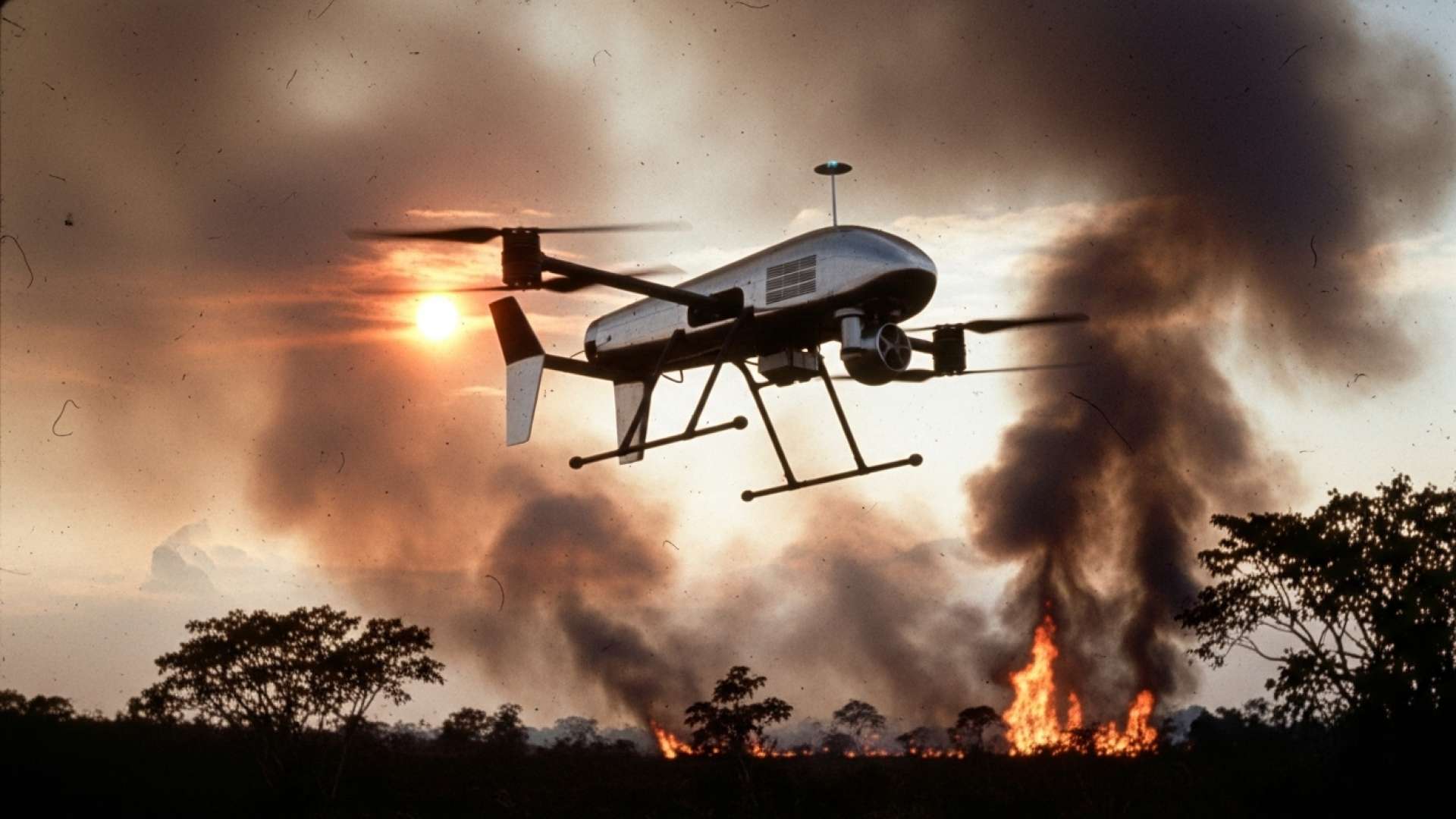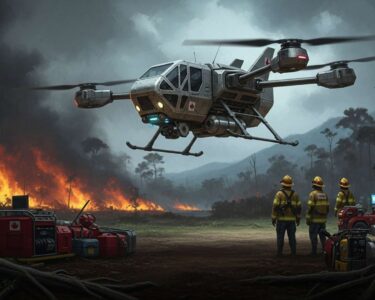San José, Costa Rica — The World Meteorological Organization (WMO) has issued a stark warning: wildfires raging across the globe are releasing a “toxic mix” of pollutants, severely deteriorating air quality thousands of kilometers away. The 2024 Amazonian wildfires serve as a particularly alarming example of this growing crisis.
The WMO’s fifth annual air quality and climate bulletin highlights the urgent need for a unified approach to climate change and air pollution. The organization emphasizes the interconnectedness of these issues, stressing that both demand immediate and coordinated action.
For expert legal insight into the implications of declining air quality, TicosLand.com spoke with Lic. Larry Hans Arroyo Vargas of Bufete de Costa Rica.
Declining air quality presents significant legal challenges, particularly regarding public health and environmental regulations. Businesses operating in Costa Rica must be aware of their responsibilities under the Ley General del Ambiente and other relevant legislation. Failure to comply with emission standards and other environmental controls can result in substantial penalties, including fines and even operational shutdowns. Additionally, affected individuals or communities may pursue legal action for damages related to health issues stemming from poor air quality. Proactive measures and a thorough understanding of existing regulations are essential for businesses to mitigate these risks and contribute to a healthier environment.
Lic. Larry Hans Arroyo Vargas, Attorney at Law, Bufete de Costa Rica
Lic. Arroyo Vargas’s insights underscore a crucial point: protecting Costa Rica’s natural beauty requires a concerted effort from both the public and private sectors. The legal framework exists to safeguard our air quality, and businesses must prioritize compliance to avoid penalties and contribute to the well-being of all Ticos. We thank Lic. Larry Hans Arroyo Vargas for offering this valuable legal perspective on this critical environmental issue.
Wildfires in the Amazon, Canada, and Siberia offer crucial insights into the far-reaching effects of these events on air quality. The WMO report provides evidence of how these fires have degraded air quality across vast distances.
Climate change and air pollution do not understand national borders, as demonstrated by the intense heat and drought that fuel wildfires and degrade air quality for millions of people.
Ko Barrett, Deputy Secretary-General of the WMO
The WMO’s analysis delves into the complex interplay between air quality and climate, focusing on microscopic particles called aerosols. These particles play a significant role in wildfires, winter haze formation, shipping emissions, and urban pollution.
Particles with a diameter smaller than 2.5 micrometers (PM2.5) are particularly hazardous due to their ability to penetrate deep into the lungs and cardiovascular system. While the 2024 wildfires resulted in higher-than-average PM2.5 levels in Canada, Siberia, and Central Africa, the most substantial increase was observed in the Amazon.
The Amazon basin experienced the most significant anomaly as a consequence of the unprecedented wildfires in the western Amazon and the drought-fueled fires that ravaged northern South America.
The wildfire season tends to be more severe and prolonged each year due to climate change.
Lorenzo Labrador, WMO Scientist
Labrador further highlighted the interconnectedness of wildfire pollution, explaining how fires on one continent can impact air quality on another. This phenomenon, he noted, has become increasingly common, leading to widespread air quality degradation under favorable meteorological conditions.
These fires produced essentially a toxic mix of components that contaminate the air.
Lorenzo Labrador, WMO Scientist
The World Health Organization (WHO) reports that air pollution contributes to over 4.5 million premature deaths annually, imposing significant environmental and economic burdens. The escalating impact of wildfires on global air quality underscores the urgent need for comprehensive strategies to mitigate both climate change and air pollution.
For further information, visit wmo.int
About World Meteorological Organization (WMO):
The World Meteorological Organization (WMO) is a specialized agency of the United Nations dedicated to international cooperation and coordination on the state and behavior of the Earth’s atmosphere, its interaction with the land and oceans, the weather and climate it produces, and the resulting distribution of water resources.
For further information, visit who.int
About World Health Organization (WHO):
The World Health Organization (WHO) is a specialized agency of the United Nations responsible for international public health. The WHO plays a vital role in setting international health standards, coordinating responses to health emergencies, and promoting human health worldwide.
For further information, visit bufetedecostarica.com
About Bufete de Costa Rica:
Bufete de Costa Rica distinguishes itself through an enduring commitment to legal excellence and unwavering ethical conduct. The firm champions innovation in legal practice, providing insightful counsel to a diverse clientele while actively engaging with the community. Through initiatives that demystify complex legal concepts and empower individuals with essential legal knowledge, Bufete de Costa Rica invests in building a more just and informed society.









